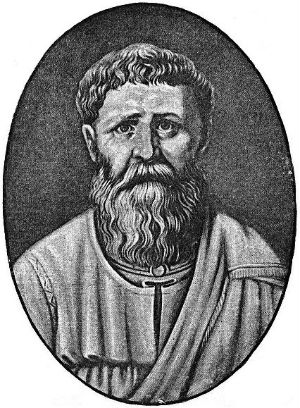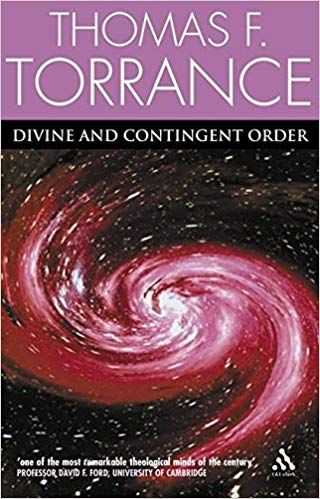‘Deliver Us From Evil’ – Christian Responses: A Primer
By Neil Earle

Oh please, Lord, not again. The mass shootings in the United States show us we are still shock-able. And no wonder.
When James Holmes did his “alleged” multiple murder on July 2, 2012 during a midnight screening of the movie The Dark Knight Rises (DKR), it was a tragedy laden with grim irony. The Orlando Weekly showed how the portrayal of the Joker in that dark dark movie offered a pop culture meditation of what we’d like to forget. Evil exists. Indeed, then president of Fuller Seminary, Richard Mouw, saluted popular culture for at least keeping alive the grisly existence of evil.
Indeed, the persona of the Joker offers a convenient portal to tie the nefarious events beginning with the Oklahoma City bombing and Colombine down to our recent traumas.
It is an age-old question – Why do bad and senseless things happen to us?
Defining Evil?
Christian thinkers have grappled with this question through the ages. Jesus was no naïve idealist but one aware of his disciples’ evil tendencies (Luke 11:13) and it was said of him “he knew what was in man.” St. Paul wrote to one of his churches about the “mystery of iniquity” (KJV) – forces of destruction and corruption extant in his day (2 Thessalonians 2:7). Both Paul and Jesus were targets of irrational violence.
 St. Augustine: God is the highest Good from which evil is a deflection, a defect.
St. Augustine: God is the highest Good from which evil is a deflection, a defect.Later on St. Augustine (354-430) reworked the shrewd insight (borrowed from Plato) that evil is but the corruption of good. Augustine most famously lamented the evil in himself in his Confessions. As he lay dying the Vandals were besieging his city of Carthage, no recluse was he ensconsed in a remote and peaceful hermitage.
During the Reformation John Calvin (1509-1564), watching the bloodletting and religious wars around him, wrote that “it pertained to His omnipotent goodness (God’s) to bring good out of evil things.” The aspect of a good Providence – that God often brings good from evil – is a Biblical teaching (Romans 8:28). It has sustained persecuted Christans through the centuries.
Augustine and Calvin remind us that evil is a knotty theological problem. Interestingly, the actor Michael Caine approaches the bleak core of “The Dark Knight” movie when his character tells Bruce Wayne/Batman – who is trying to figure out the Joker’s motives – that “Some men just want to watch the world burn.”
Right. Evil’s origins are obscure even in Stephen King novels. Flagg in The Stand simply shows up. He is foiled at the end but there are hints that given the right set of circumstances he’ll be back. “The mystery of iniquity” – there certainly is a mystery about earthquakes and typhoons and the senseless mass killings we have seen. Augustine’s definition of evil as a spore, a cancer, a mould preying on a healthy host element has won many supporters across the centuries. “The only cause of evil,” wrote Augustine, “is the falling away from the unchangeable good…it is puffed up with a foolish joy” (Enchiridion, pages 3031).
Pride the Root
Satan the Devil is in fact scored for that very sin of pride in 1 Timothy 2:6.
Pride as “foolish joy?” Yes. Augustine’s point that evil is often the falling off from a Good makes me think of another movie series – the Star Wars series featuring the character of Darth Vader. Originally Vader was good but he turned from good to evil, “the dark side of the Force.” In the end Vader turns back to Good according to Augustine’s hopeful script, “and even one which was corruptible must be to some extent a good, for only by corrupting what was good in it could corruption do its harm.” He repeats, “the only cause of evil is the falling away from the unchangeable good of a being made good but changeable.”
For Augustine, God, being unchangeable, is the highest Good from which evil is a ../../images/, a defect. “Evil cannot exist without good,” he asserts, “but good can exist without evil.” Hmm. This covers quite a few bases, if not all.

Evil Preying on Good
Christian thinkers have elaborated on this. The irrationality and dedication to chaos which mass shooters exemplify points to “one supreme degree of Reality beyond us.” So says C.F. D’Arcy in his essay “Atonement and the Problem of Evil” in The Atonement in History and in Life. A weighty tome indeed but one indicative of how Christians have wrestled with this problem since the days when Jesus asked us to pray “deliver us from evil.”
In Dying, We Live Kenneth Grayston offers this reworking of Augustine: “Sin has no independent existence; apart from God’s holy law, Sin is lifeless. When, however, God utters a prohibition, Sin seizes upon it as a base of operations.” Grayston goes on to quote the Jewish writer Philo who summarized evil in terms eerily reminiscent of Michael Caine’s: “Like a flame in the forest, it spreads abroad and consumes and destroys everything.”
Interestingly, experts on terror tell us this: sometimes the fever of hatred has to burn itself out. Grayston, D’Arcy, Augustine and Philo are all echoing St. Paul’s meditation on the strange, mordant effects of personal evil in Romans 7:7-8, “Indeed I would not have known what sin was except through the law…But sin, seizing the opportunity afforded by the commandment, produced in me every kind of covetous desire.”
“Contingent Evil”
Obviously these are insightful and even astute analyses. But what of impersonal natural evil such as Hurricane Katrina or the destructive tsunamis of the last decade?
Here we get help from the Scottish theologian Thomas Torrance (1913-2007) who saw too many soldiers die when he served as a chaplain in World War Two.
“Mankind is engulfed in a vast evil quite beyond it…an abyss of fearful darkness too deep for men and women to understand and certainly too deep for them ever to get out of it.” This is so true. Evil did not start with us nor will it end with us. That is astonishing evidence of its power. Torrance is the apostle of Contingency, the theological claim that the universe, the world itself is subjected to vanity, futility as Paul wrote (Romans 8:20, NAV). We look out at a good creation but its swirling gas clouds and deadly black holes and our pockmarked moon shows signs of either being unfinished or fashioned so dynamically as to allow for both progression or regression. Torrance noticed that Einstein and Bohr and others had discovered a strange quantum universe that was predictable in some ways (Newton’s emphasis) but yet teemed with a spontaneity and dynamism which defied complete mathematical certainty.
In Divine and Contingent Order Torrance argued that the contingency of the universe (stars exploding and others being born, meteors streaking across the night sky) this points to the cosmos as in many ways ultimately mysterious and baffling. As he concludes, “this is not because it is deficient in rationality (we can still guide spacecraft to Mercury) but because the extent and nature of its rationality exceed our capacity to achieve complete mastery over it” (page 40).
 Heath Ledger as the Joker: popular culture often reminds us that Evil never goes away.
Heath Ledger as the Joker: popular culture often reminds us that Evil never goes away.The Sense of a Purpose
The same applies in trying to “tame the savage heart of man” as the Greek poet wrote 2½ millennia ago. Torrance is articulating some powerful thoughts, ideas that seem to be an advance on Augustine and Calvin. Above all, Torrance the Christian reiterates the cardinal truth of the Christian message of the Son of God, Jesus Christ, coming to rescue us from the consequences of living in a contingent universe, a setting where good and evil coexist and where evil often has the upper hand. As he phrases it in a long sentence:
“This is what God does, he comes himself in order to deliver us from subjection to destruction and death. It is this that lies behind not only the cross and the descent of the savior into our bottomless pit of guilt and death, but behind every act of healing and mercy in which Jesus sought to release distressed humanity from its subjection to evil and vanity, to release it from being a prisoner of chaos and disorder and disintegration, and to restore it to the truth of God’s creation in which he affirms as good what he has made and assumes it into communion with himself to share in his own life and glory” (Incarnation, page 242).
This is hefty theologizing indeed but it speaks so well to our desperate need, our bewilderment and our suffering when evil strikes, either personally or in the world of nature. Jesus in his life, death and resurrection has already begun the process of delivering us from evil. That is why the Second Coming of Jesus is such a lively hope. “Do not lose your sense of the Future” counsels James Smith of Calvin College. All Christian hope and expectation looks to the final deliverance, that victorious future when the circles will be squared, when God himself comes down to explain to us what happened to us and why, when we shall know as we are known (1 Corinthians 13:12).
In that day we will learn that the all powerful Ruler is also the all-loving Forgiver.
Satan the Devil as the personalized Biblical archetype of evil seems to be many degrees of irrationality beyond us. Whether as Professor Moriarity in The Adventures of Sherlock Holmes or that agent of chaos known as the Joker in The Dark Knight, evil often fascinates and beguiles and is too real to ignore, though we try. Rather than an Augustinian “falling off,” human evil was magnetic and powerful enough to take the life of the spotless Son of God which proves it has an active ingredient on its own. We face its magnetic downward pull every day as the Christian struggle, for embattled we surely are.
The Gospel is good news. Christians believe that Jesus entered into the depths of evil and ultimately defeated it (Colossians 2:13-15). He is returning to deliver the whole cosmos from its embroilment in evil (Romans 8:22-25). Meanwhile we live in hope, that hope that if evil comes, can Good be far behind?